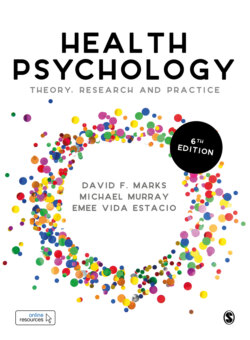Читать книгу Health Psychology - Michael Murray - Страница 41
На сайте Литреса книга снята с продажи.
Sleep and rest
ОглавлениеSleep and rest are necessary for a properly functioning IS. Feedback loops involving cytokines in response to infection participate in the regulation of non-rapid eye movement sleep. In sleep deprivation, active immunizations may have a diminished effect, resulting in lower antibody production and a lower immune response than for well-rested individuals. Proteins such as NFIL3, which are closely intertwined with both T-cell differentiation and our circadian rhythms, are affected by disturbances of natural light and dark cycles through instances of sleep deprivation, travelling across time zones or shift work. Such disruptions on a regular and frequent basis can lead to an increase in chronic conditions such as heart disease, chronic pain and asthma.
Sleep, sleep loss and disrupted sleep are strongly linked to acute and chronic inflammation (Opp and Krueger, 2015). People suffering from sleep deprivation demonstrate changes in circulating pro-inflammatory and anti-inflammatory cytokines, soluble receptors, inflammatory signalling pathways and innate immunity. Circadian misalignment also induces inflammation, which has ramifications for shift workers. Shift work is a risk factor for inflammatory diseases, including cancer and diabetes. In addition to the negative consequences of sleep deprivation, sleep and the circadian system have regulatory effects on immunological functions in both innate and adaptive immunity.
Chronic diseases that are associated with suboptimal sleep are inflammatory diseases. Chronic insufficient sleep is a risk factor in part because of the inflammatory state that results from sleep disruption. Inflammation, defined by elevated local and systemic cytokines and other pro-inflammatory mediators, occurs in response to many stimuli, including pathogen exposure, cellular damage, irritants, cellular dysregulation and waking activity.
